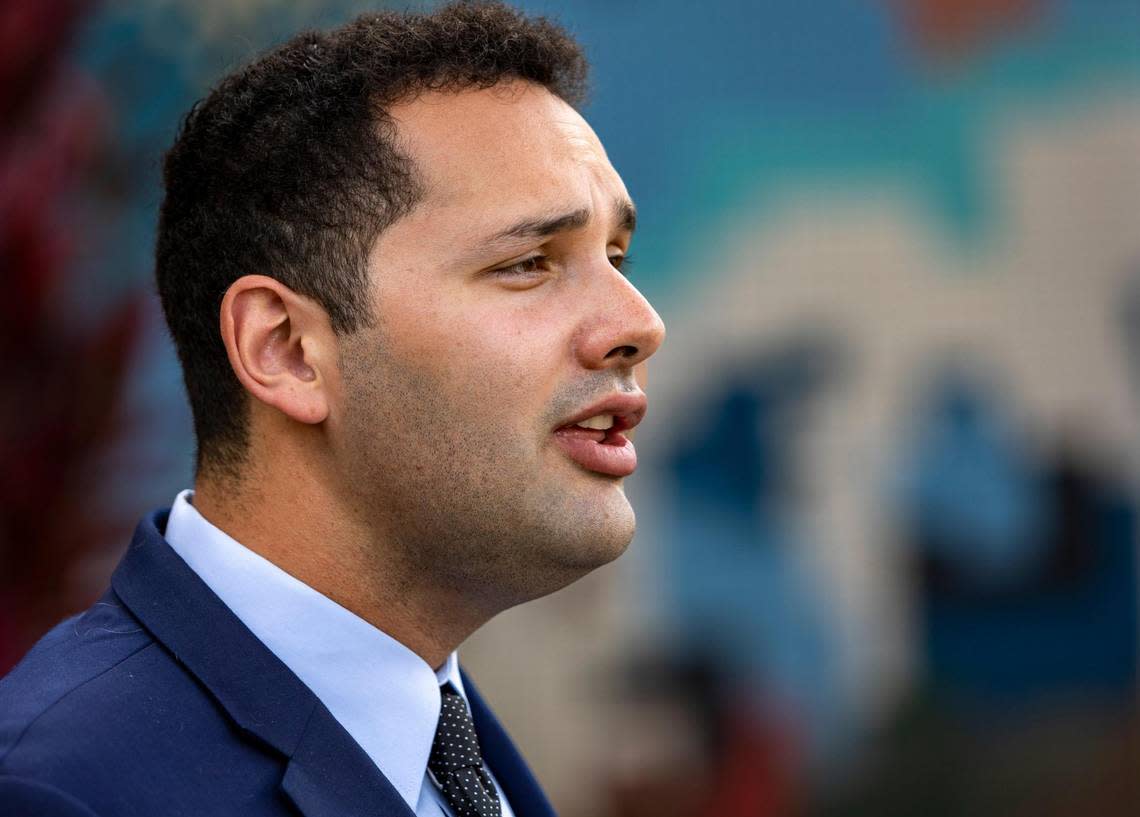Our tax collector could help ease Miami-Dade’s housing crisis. Here’s how| Opinion
In November, Miami-Dade voters will elect the head of the Office of its Tax Collector for the first time, and I am honored to be in the running for this critically important position.
As I’ve reached out to stakeholders and voters throughout the county, there is a clear perception that this position is merely bureaucratic.
While it is true that many administrative responsibilities await our new tax collector (collection of property, bed and business taxes, regulation of DMV/tag agencies and issuing fishing and hunting licenses to name a few), we must recognize that the person elected to this position will have a bully pulpit to influence and create policy on some of the most pressing issues facing us right now.
And there is no greater issue than addressing the lack of affordable housing in Miami-Dade.
The ever-present need for affordable housing options cannot be overstated.
Whether magnified by the clash between low housing inventory and skyrocketing foreign real estate investment activities or the unsustainable rise of home insurance premiums, we need to take decisive action to reach a viable solution.
The recently passed landmark piece of legislation known as the Live Local Act, while not yet perfect, aims to address this critical issue.
The Live Local Act seeks to increase workforce housing by incentivizing developers to build more affordable units through significant benefits such as property tax exemptions and sales tax refunds on building materials used for these units.
For residents, the immediate benefit is an increased inventory of affordable housing options in their communities, reducing the need for long commutes and thus improving their quality of life. All this will inevitably translate to a more resilient and secure workforce and a broader tax base.
The head of Miami Dade’s Office of the Tax Collector will be crucial in facilitating this initiative by working with local governments to streamline the application process for those developments claiming Live Local tax benefits, taking an innovative approach to customer service by developing precise and easy-to-find applications, along with professional and dedicated staff to answer questions and guide stakeholders every step of the way to reduce overall processing time.
The tax collector will also need to commit to open and transparent communication, engaging in regular workshops and education initiatives on the opportunities and restrictions within the Live Local Act. Only these kinds of open forums ensure a collaborative approach, allowing residents to voice questions and concerns.
Furthermore, while property tax exemptions ultimately reduce the overall tax burden, developers face significant upfront costs. The Tax Collector will need to explore ways to expedite the exemption process and minimize any significant financial strain that would prevent projects from being built.
Additionally, the tax collector must work with the Miami-Dade Property Appraiser to ensure developers understand the specific procedures for claiming exemptions, potentially reducing the need for upfront payments in some cases.
This act is more than just tax breaks; it’s an investment in our collective future. By incentivizing larger affordable housing developments, we create a win-win situation for residents, developers, and the state’s economic future.
The tax collector’s Office isn’t just about collecting taxes; it can foster a healthy economic environment and improve quality of life by playing a crucial role in developing affordable housing policy.
By educating stakeholders, simplifying the application process and minimizing upfront financial burdens, we can make affordable housing a reality for more Floridians.
Let’s take advantage of this unique opportunity to elect our Tax Collector for the first time by thinking outside the box and beyond the four corners of what could otherwise become just another bureaucratic position. Let’s explore the many ways to build a brighter future together, brick by affordable brick.
Bryan Calvo is currently a Hialeah Councilman. He will resign his post to seek the top job at the Miami-Dade Office of the Tax Collector in November. In the Republican primary in August, he will face Dariel Fernandez, a former candidate for Miami-Dade County Commission.

